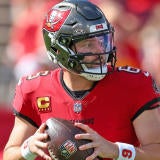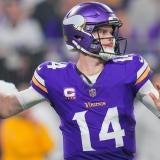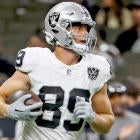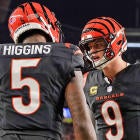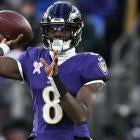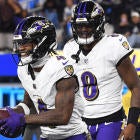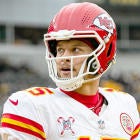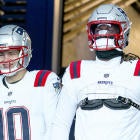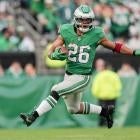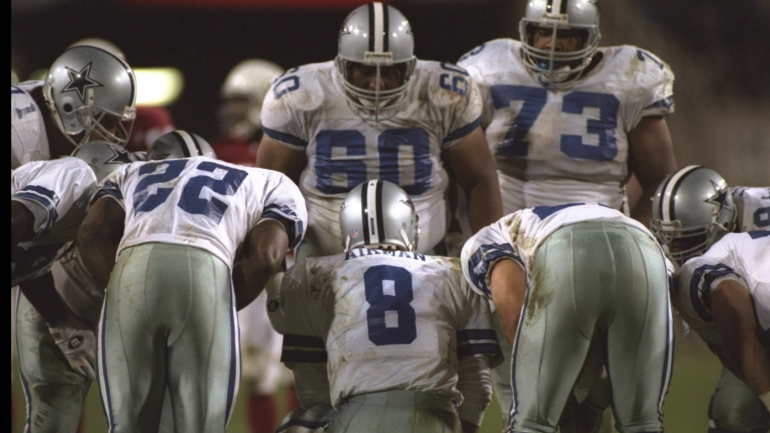
The 1995 Dallas Cowboys are the perfect example of how the final week of the regular season can help determine the fate of a team. While the '95 Cowboys did win two playoff games before dispatching the Steelers in Super Bowl XXX, they likely would not have won that Super Bowl if not for the outcomes of three different games during the final week of the regular season.
Following an 8-1 start, the Cowboys welcomed the defending Super Bowl champion 49ers to town for a marquee Week 11 showdown inside Texas Stadium. Dallas had defeated San Francisco in the '92 and '93 NFC Championship Games, and was looking to regain the balance of power in the NFC after falling to the 49ers in the 1994 NFC title game, 38-28.
Instead of tilting the scales back in their favor, the Cowboys were blown out by the 49ers, who won the game with ease despite playing without starting quarterback Steve Young. San Francisco's offense, with Elvis Grbac filing in for Young, still managed to run circles around the Cowboys' defense by lining up Jerry Rice all over the field. Dallas was hoping to use man coverage on Rice with Deion Sanders watching his every move, but was unable to execute its plan, as Rice lined up on both sides of San Francisco's offense while creating holes in the Cowboys' scheme.
With Dallas' defense scrambling to figure out their assignments, Rice -- who was lined up in the slot -- took advantage, taking a slant pass and running the remaining distance for an 81-yard touchdown. The rout was on, as the 49ers backed up January's NFC title win with a convincing 38-20 Week 11 victory.
"This one was actually worse than the championship game. We never even got close," said Cowboys fullback Daryl "Moose" Johnston during an NFL Films documentary on the '95 Cowboys. "That San Francisco game was the first time in a long time that we felt like, 'They're just better than we are right now.'"
"We got outcoached in that game," added former Cowboys cornerback Larry Brown, who was out of position on Rice's 81-yard score.
Speaking of coaching, seemingly every Cowboys fan in America was up in arms after Dallas head coach Barry Switzer -- who had replaced two-time Super Bowl champion coach Jimmy Johnson in Dallas two years earlier -- called consecutive running plays on fourth-and-1 deep in his own territory that contributed to an ugly Week 15 loss in Philadelphia against the Eagles. Not only had the Cowboys lost three out of their last five games, they also fell behind the 49ers in the race to secure the top seed heading into the playoffs.
"That was a point in the season," recalled longtime Cowboys PR representative Rich Dalrymple, "when you started to think, 'The Cowboys aren't what the Cowboys were, and maybe the pendulum of power has completely shifted to the Bay area.'"
After beating the Giants by a point in Week 16, the Cowboys appeared to be a team running on fumes when they boarded a plane on Christmas Eve to face the Cardinals in Week 17 on "Monday Night Football." Everything changed, however, when news broke of what took place earlier that day between the 49ers and Falcons.
"We knew before we got off the plane -- and the word spread through the rows of the plane like wildfire -- the 49ers lost," recalled Dalrymple. "If we go into Arizona and we take care of business on Monday night, Christmas night against the Arizona Cardinals, we can get home-field advantage again."
The Cowboys did take care of business, scoring the game's first 24 points in an eventual 34-13 dismantling of Arizona on Christmas Day. The game also had historical significance, with Emmitt Smith scoring a then-NFL-record 25 rushing touchdowns in a season on a fourth-quarter run.
On this date in 1995, the Dallas Cowboys' Emmitt Smith sets the NFL record of 25 touchdowns in a season against the Arizona Cardinals. pic.twitter.com/owtrg2qqKz
— Honest☘️Larry (@HonestLarry1) December 25, 2020
"That game was just so special to us," Brown said of the victory that clinched the Cowboys' fourth consecutive NFC East division title. "Guys were excited, and I think it gave us the belief in ourselves again that we could do it, we could make it back to the Super Bowl."
The Cowboys, unbeknownst to them, received another Christmas gift in Week 17. The Packers, who needed a Week 17 win over the Steelers to win the NFC Central division title while also securing a playoff spot, pulled out a 24-19 victory after Pittsburgh wideout Yancey Thigpen dropped what would have been the winning touchdown reception in the game's final minute. While the Cowboys -- by virtue of winning the top seed -- would face the lowest remaining seed in the second round, the 49ers would have to face the highest remaining seed in the divisional round, which meant a likely matchup with league MVP Brett Favre and the third-seeded Packers.
The Cowboys started their postseason run with a convincing victory over the Eagles in the divisional round. The 49ers, conversely, were stunned in the second round by Favre, Hall of Fame pass-rusher Reggie White and rest of the Packers, who would go on to beat the 49ers in three consecutive postseason meetings. This meant that the Cowboys, instead of facing Young, Rice, and the 49ers in a fourth consecutive NFC Championship Game, would instead host a Packers team that had lost to the Cowboys in Dallas in the previous two postseasons.
While Favre and the Packers made them work for it, Smith, Michael Irvin, Troy Aikman and the rest of the Cowboys eventually pulled away from Green Bay, defeating the Packers 38-27 en route to their third Super Bowl appearance in a four-year span. And while Pittsburgh also put up a valiant effort, the Cowboys ultimately prevailed in what remains the franchise's most recent Super Bowl win.
One question still remains from the Cowboys' last championship season: Would they have been able to defeat the 49ers in the NFC title game, either in San Francisco or at home ? Thanks to the Falcons, the Packers, and the Cowboys' Week 17 win in Arizona, that's a question NFL fans will never know the answer to, and a question the '95 Cowboys will never have to worry about.


